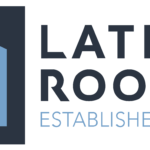Roof Over Your Head: Flexible Financing Options for a Stress-Free Installation
Why Rooftop Installations Require Flexible Financing Options
Installing a rooftop system can be a costly and daunting endeavor, making it challenging for homeowners and businesses to choose the best option. Rooftops are crucial in providing shade, energy savings, and a protective cover for various structures, yet the expenses involved can create financial burden. The market is rapidly evolving, offering a multitude of solutions with varying installation costs. Moreover, financial constraints can lead to stress, anxiety, and frustration when trying to make decisions on the go. That is why, it is vital to prioritize flexible financing options for rooftop installations, which can ultimately ensure a smooth and seamless process.
Understanding Flexible Financing Options: A Vital Component for Seamless Installations
When embarking on a rooftop installation project, it is imperative to assess your financial resources and the various options available. By exploring flexible financing options, you can identify the perfect fit for your needs. Some options, such as solar rooftop leasing, may require little upfront capital investment, but are tied to specific contractual commitments. Another option is personal financing or home equity loan, providing more control but often incurring higher interest rates and repayment periods. Understanding your financial goals, credit profile, and contract terms enables you to negotiate the most suitable terms. This meticulous approach minimizes financial shocks and enables effective budget management.
Credit Score Play a Critical Role in Roofing Installation Costs
As the decision to install a rooftop system gains momentum, it becomes necessary to delve into credit considerations. An excellent credit score can drastically reduce your credit costs. Lenders base their risk assessment on individual creditworthiness, factoring into the loan and interest rate. Moreover, a well-maintained credit record enables easier application and fewer hurdles to surmount during the application process. Consequently, if credit scores indicate potential for borrowing, individuals and businesses will benefit from lower installation costs and shorter repayment terms. Conversely, a lower credit score necessitates caution in selecting lending options.
Solar Loans: The Modern Solution to Rooftop Installation Financial Concerns
Solar rooftop loans, tailored to financing solar installations, have experienced a remarkable transformation in the last decade. These specific loans often target homeowners looking to save money on utility bills. Additionally, a solar rooftop can increase your property’s resale value while reducing its ecological footprint. Solar loans vary in features, repayment duration, and interest rates; however, most programs promise low-risk financing options for solar installments. Governments and lending institutions alike encourage the uptake of renewable energy sources through these schemes.
Key Benefits of Using Solar Rooftop Installations Financing Options
Implementing flexible financing options enhances the success of your solar rooftop system. One substantial advantage of solar loans lies in lower upfront costs; this upfront investment flexibility allays any concerns over hefty outlay. As payments are interest-only or partly interest-bearing, a low monthly impact on the purse is mitigated. Notably, solar panels reduce energy expenditures, with government incentives reducing overall expenditure for solar loan repayments.
Reaping the Advantages: Solar Financing Offers a More Sustainable Path Forward
Considering the multiple financing options on the table, solar roof financing remains one of the most efficient approaches. Many homeowners opt for solar rooftop financing, acknowledging benefits such as lower installation costs, flexibility, and overall energy saving. When contrasted against traditional payment strategies, a solar roof provides a cleaner, environmentally friendlier source of power with a decreased reliance on foreign energy supply.
What to Avoid: Key Errors in Financing Rooftop Installations
Several avoidable financial blunders when financing a rooftop installation will hinder financial progress and the overall efficacy of your installed system. To start with, insufficient upfront payments should be prevented. Care must be exercised in ensuring correct calculations before finalizing contractual agreements and financial settlements.
Stress-Free Experience: Selecting the Appropriate Installation Provider
Collaborate with trusted industry professionals. Establish rapport, and gauge their capacity in addressing common questions regarding various financing methods. Trust but verify credentials, track-record, as well as consumer reviews in the final judgment. Choose an installer or lender able to deliver excellent customer services and personalized experience.
Incorporating Eco-Friendliness: Integration with Local Programs and Utilities
Maximizing green initiatives further empowers households and organizations when opting for rooftop installation with flexible financing. Align these efforts by participating in existing local incentive programs or collaborative initiatives involving utility providers.
Staying Adaptable and Future-Focused: Strategies for Maintaining a High-Performance Installation
Maintenance is critical when it comes to optimizing installed rooftop solar systems. Continuous monitoring allows for immediate notice of faults or impending replacements. Maintenance, alongside continuous energy meter readings, supports optimal usage, allowing owners to extract maximum efficiency out of these renewable sources of energy.




